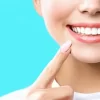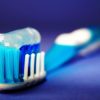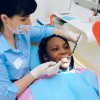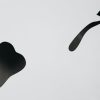Your next visit to your Fort Lauderdale dentist can save your life.
Dental professionals recommend visiting dentists at least twice a year. The main reason for that is that this allows your dentist and you to stay on top of your oral health. If there are any significant issues that arise in between your visits, your dentist can take the necessary steps to contain a problem before it spirals out of control.
During one of your routine visits, you might want to consider undergoing an oral cancer screening.
Why get yourself screened for oral cancer
According to the World Health Organization or WHO, cancer is one of the leading causes around the world. And oral cancer is the eighth most common type of cancer.
The Oral Cancer Foundation or OCF predicts that this type of cancer will affect about 53,000 Americans and may likely cause close to 10,000 deaths or equivalent to one person per hour. The death rate for the disease is significantly higher compared to other more common types of cancer like cervical cancer and Hodgkin’s lymphoma.
Among the people who are considered at most risk of contracting oral cancer are smokers and people who drink alcohol excessively.
Early detection of oral cancer substantially increases the five-year survival rate of patients, between 75 to 93 percent.
Fortunately, this type of cancer is not hard to detect. However, most patients discover that they are afflicted with the disease during the later stages when the cancer has spread to another body part like the neck. Worse, the symptoms are easy for an ordinary person to overlook.
Among the most common symptoms of oral cancer are lumps or sores in the mouth, throat, or lips, difficulty in chewing or swallowing, weight loss, sores or ulcers that don’t heal, and tenderness or pain in the lips or mouth.
This is where oral cancer screening becomes even more critical.
How your dentist screens for oral cancer
During the oral cancer screening, your dentist will evaluate your mouth, including the soft tissues.
Before the procedure is done, your dentist will need to know about your medical history. Make sure that you inform your dentist about your recent diagnosis, if any, as well as the medications you have taken in between your last and current visit to the dental clinic. Proper oral care may help you to look younger, beautiful and its a plan for anti-aging.
The screening is comprised of two parts: the visual and physical exams.
During the visual exam, your dentist will check your face, mouth, lips, neck, and your nose and oral cavities. Here, your dentist will look abnormalities like bumps, ulcers, discoloration, and swelling.
During the physical exam, your dentist will touch your cheeks, head, chin, and jaw to discover nodules and other types of abnormal growth. He will ask you if you feel any pain while touching these body parts. He may also request you to swallow.
After the exam
What happens after the procedure?
Should your dentist discover abnormalities during the screening, there are two courses of action he may recommend. First, he may ask you to come back at a later time to evaluate the abnormalities he may have discovered. Second, he may recommend a biopsy in order to determine whether the abnormality detected is indeed cancer.
On the other hand, if the screening yields a negative result, your dentist may ask you to return at frequent intervals if you are a smoker or heavy drinker.
Be aware that an oral cancer screening is not diagnostic in nature. If your dentist suspects anything, you will need to see a specialist for confirmation. Remember, the earlier the cancer is detected and treated, the higher your survival rate will be. (onni.com)
Oral cancer screening is a straightforward procedure that can be conducted during a routine visit. If you are a smoker or heavy drinker, you might want to ask your dentist for a screening during your next visit and prevent a severe problem before things go out of hand.







